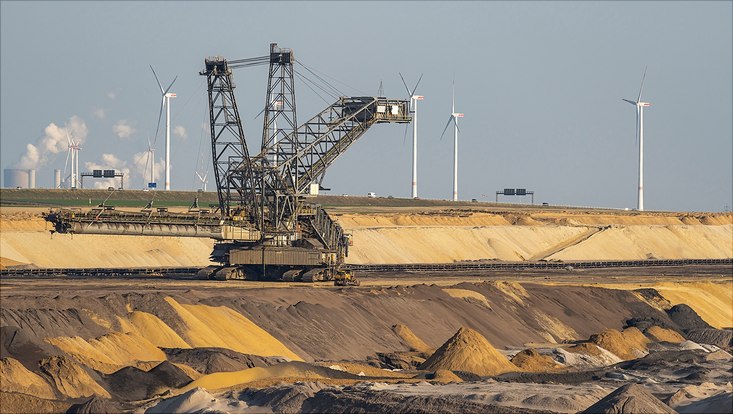A trump card in the coal phase-out: taking CO2 certificates off the market

The EU’s goal is to be climate-neutral by 2050. Especially emissions trading is meant to help make that a reality – by limiting the CO2 emissions of companies like coal plants or steel mills. If they want to keep emitting, they have to purchase certificates. Which means companies that release less CO2 into the atmosphere save cold, hard cash. The number of newly issued certificates decreases annually, while the price rises. In addition, the coal phase-out is meant to help Germany achieve climate-neutrality. Hamburg-based researchers, together with partners from the scientific community and business sector, are currently investigating how these measures interact, and what politicians and the public think about them.
After all, the devil is often in the details. For instance, it might seem logical at first blush that shutting down a coal plant would mean less CO2 in the atmosphere. But if the corresponding emissions certificates stay in circulation, then e.g. a steel mill can snatch them up – which means the same amount of CO2 is emitted, just from a different smokestack. Those who have already grasped such interactions tend to rely more on an instrument that is especially effective when it comes to protecting the climate: permanently removing certificates, combined with a reduced use of coal power. That’s what the experts determined on the basis of surveys with political decision-makers and a representative household survey. And the best part: with their decision, the participants actually removed certificates and temporarily reduced the output of a coal power plant.
The researchers’ findings directly influence politics and society. For example, the federal government’s Coal Phase-out Act obligates it to remove a number of certificates from EU emissions trading equivalent to the emissions reduction achieved by the coal phase-out – and the calculations used are also based on the findings of the Hamburg-based project. Similarly, the expertise of e.g. non-governmental organizations working on behalf of citizens’ groups can help to take certificates off the market as effectively as possible.
Further Information
Project partners
Potsdam Institute for Climate Impact Research (PIK)
RWI – Leibniz Institute for Economic Research
Öko-Institut[MF1]
Neon Neue Energieökonomik GmbH
Vivid Economics Ltd.
ForTomorrow gGmbH
Project website
www.cliccs.uni-hamburg.de/research/theme-b/b2.html
Publications
News: Climate promises that can’t be kept: A Pipe Dream as Business Model
Beyond control: Policy incoherence of the EU emissions trading system
Since 2019, through Germany’s Excellence Strategy the project has received funding from the German Research Foundation (DFG) as the University of Hamburg’s Cluster of Excellence for climate research “CLICCS – Climate, Climatic Change, and Society.” In addition, it has received €300,000 in funding as part of the Federal Ministry of Education and Research (BMBF) project ARIADNE.
